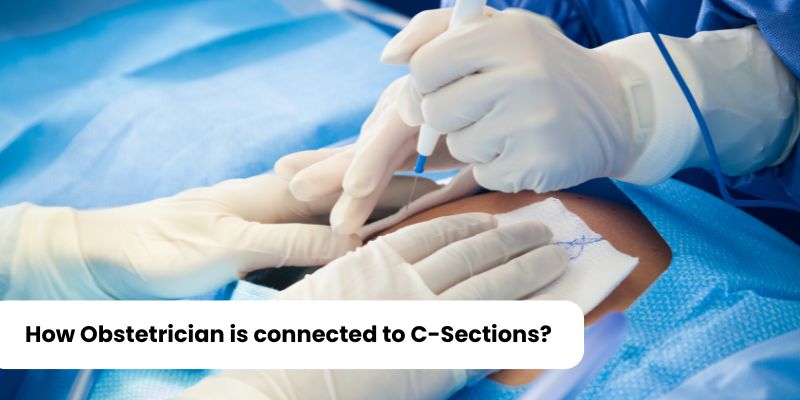



A surgical procedure in which the mother's abdomen or uterus is surgically sliced open to deliver the baby, known as cesarean section, sometimes known as a C-section.
This technique is saved for situations where vaginal birth seems risky or impossible and poses problems in an ordinary delivery.
Obstetrics is a medical specialty that treats and cares for pregnant women, including prenatal care, childbirth, and postpartum care.
C-sections which is a surgical producer come under the Obstetrics. The obstetrician is a medical specialist in obstetrics. They play a vital role in the decision-making and performance of C- sections.
1. Healthcare Symptoms:
• Obstetricians examine and monitor the pregnancy's growth.
• During labor, the obstetrician might recommend a C-section if difficulties or medical conditions arise that may threaten the mother's or the child's safety.
2. Delivery Assessment
• Obstetricians are responsible for keeping an eye on the labor process, which includes determining the baby's position and tracking the mother's development.
3. Optional C-Sections
• For a variety of reasons, mothers and obstetricians can opt to have a last-minute or planned C-section.
• Obstetricians may also consult and educate pregnant women, talking over the possible advantages and disadvantages of a planned cesarean section based on their own decisions, medical history, and prior deliveries.
4. Emergency C-Sections
• Obstetricians are prepared to handle emergencies that can emerge during childbirth.
• In cases where difficulties arise out of the blue, including abruption of the placenta or umbilical cord prolapse, the obstetrician may have to perform an emergency C-section to manage the immediate risks.
5. Postpartum Care
• Obstetricians are responsible for the mother's recovery period after a C-section.
• This includes keeping an eye on the incision's healing, controlling pain, and responding to any issues that arise postpartum.
Obstetricians play a crucial part in the planning, execution, and decision-making of C-sections when they are considered necessary for the mother's and the baby's health and well-being.
This is how obstetrics and C-sections are related to one another. The connection between obstetrics and cesarean sections emphasizes the complete support that obstetricians give during the pregnancy and childbirth process.
A Cesarean section (C-section) is a medical procedure typically considered the last choice by gynecologists for delivering a baby.
This situation is reserved for situations where the natural delivery process has risks that could lead to health complications for both the mother and the baby.
Sometimes, the need for a C-section arises due to improper prenatal care, which includes conditions including diabetes, high blood pressure, low food intake, lack of exercise, and high-stress levels.
The obstetrician plays a vital role at every stage of the pregnancy from the pregnancy period to the delivery and after childbirth.
We at KD Blossom, monitor the entire procedure and provide advice on healthy eating, regular eating, and mental health and they also suggest reading books. The role of the obstetrician goes above monitoring pregnancy; they also play an essential role in ensuring the successful completion of the C-section procedure.
This implies that precautions must be taken to reduce risks and ensure the mother and child are safe throughout the procedure.